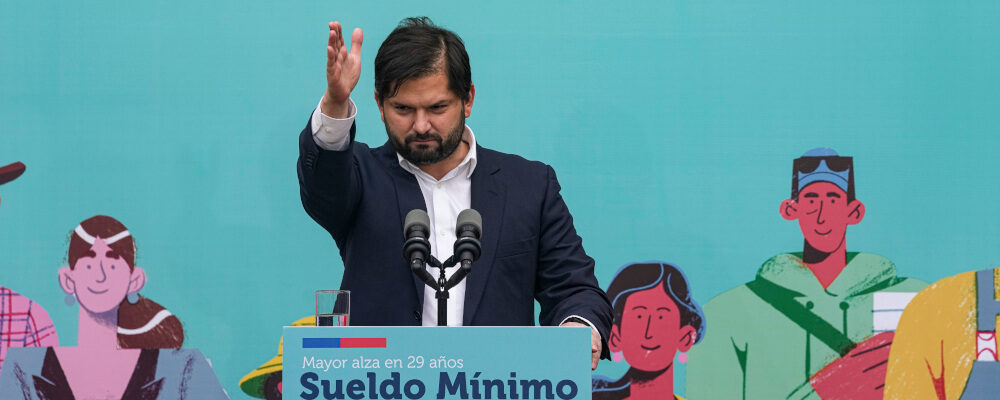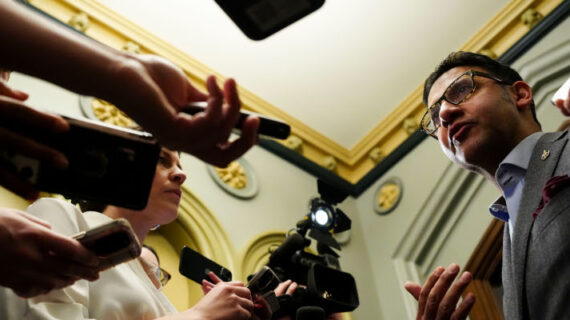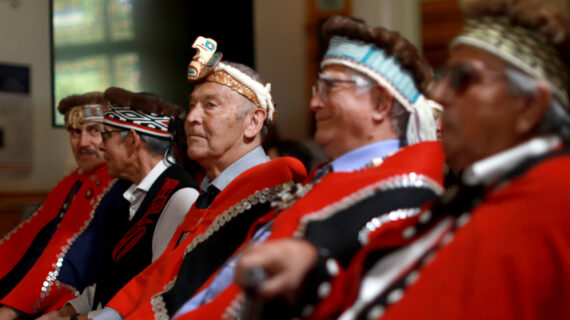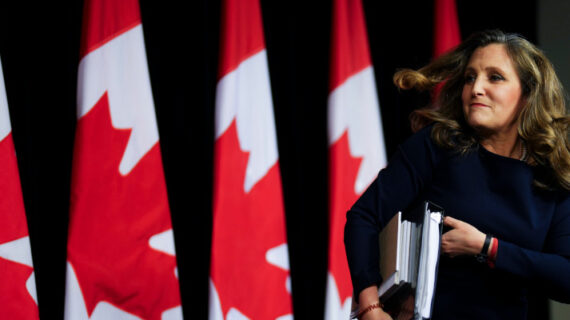Review of: The Chile Project: The Story of the Chicago Boys and the Downfall of Neoliberalism
Author: Sebastian Edwards
Publisher: Princeton University Press, 2023
Some countries learn from their mistakes, and others don’t. Then there’s Chile, which doesn’t learn from its successes. Chile’s radical president, Gabriel Boric, elected in 2021, is determined to undermine all Chile has built in the past 30 years. He campaigned on the promise to abolish the country’s “neoliberal model.”1The term neoliberalism has a long, tortured history. Free-market advocates and other libertarians dismissed the term as having no claim to their views. Friedrich Hayek once claimed neoliberals was just another name for socialists! Nonetheless, it now stands as a term that market solutions can address most economic problems. Why the drastic change that made Chile the richest and most successful economy in South America?
That’s one of Sebastian Edwards’ stories in The Chile Project, a program started in 1955 by the U.S. State Department to train Chilean economists at the University of Chicago. Edwards, a native of Chile and economics professor at UCLA, follows Chilean students, known as the Chicago Boys, and how they moved Chile from a planned economy to one based on free-market principles. The Chicago boys learned their economics from a stream of Nobel economists, including Friedrich Hayek, Milton Freidman, Gary Becker, George Stigler, and two prominent Canadians, Harry Johnson and Nobel economist Robert Mundell. (Long forgotten today, Harry Johnson was perhaps the most influential economist in Canada in the ’60s and ’70s.) It’s also the story of the collapse under the socialist president Salvador Allende and how the Chicago Boys found themselves in the centre of reviving the nation’s economy.
When Salvador Allende was elected in 1970 with only 38 percent of the vote, along with a coalition of Marxists, communists, and socialists, they quickly started nationalizing major sectors of the economy, including agriculture and the nation’s most valuable asset at the time, copper mines. All to be done with massive spending. Hyperinflation quickly followed along with production shortages, black markets, trade deficits, food shortages, and demonstrations.
After the military coup under General Augusto Pinochet on September 11, 1973, and the death of Allende by his hand, Pinochet was desperate to find a way to save the economy. That’s when he turned to the Chicago Boys, not because he believed in neoliberalism, but because they were ready with a plan. In March 1975, the only time Professor Freidman met with Pinochet, he convinced the General that Chile’s problem was a classic case of monetary excesses and protectionist policies. The only solution was a “shock treatment.” That meant a massive reduction in spending, free trade, deregulation, and privatization. Sustained growth through more competition was the only way to help the economy recover and reduce poverty.
Many were skeptical. The left-wing Guardian called the plan “lunatic schemes.” Pinochet and the military were skeptical as well. Even businesses opposed the plan, proving that the one thing corporations fear most is free enterprise. More in desperation than ideology, the General handed the Chicago Boys key cabinet positions to rescue the economy. According to Sebastian Edwards, the turning point in Chile’s economic history was the visit by Milton Friedman.
The recovery under Pinochet was long and hard. When democracy returned in 1990, Chile was a different country from 1973. Chile went from one of South America’s poorest GDP per capita countries to the highest by 2018. However, as Edwards reminds us, the Chile Miracle had an original sin. It was put in place by a dictatorship that violated human rights and systematically persecuted, imprisoned, tortured, and killed its opponents while thousands went into exile.
Years after the coup, many still believe that the CIA, and President Nixon’s National Security Advisor, Henry Kissinger, had engineered the overthrow of a legitimately elected president. There’s no question that after Cuba the U.S. had no patience in losing another democracy to communism, especially since Fidel Castro was procuring arms to Chilean rebels. Chile’s problems were caused mainly by Chileans. Even the philosopher and leftist supporter Michel Foucault blamed Marxists in Allende’s government for Chile’s collapse. Unfortunately, and unfairly, the Chicago Boys will always live with the stigmata of Pinochet’s brutal regime.
But the neoliberal model that the Chicago Boys put in place held firm and wasn’t abandoned by the country’s new leaders, including the socialist administration of twice-elected president Michelle Bachelet.

By 2022, the enemies of neoliberalism were now positioned to promote a new constitution founded on dignity and respect for all, especially for Indigenous peoples. The proposed new constitution was loaded with the language of “social rights,” moving away from patriarchal rule, and removing the sins of individualism, greed, and profit. In other words, Chile’s ambition was to create a new selfless economic age, or even a New Man—or, more appropriately, a New Intersectional Being. When the new constitution was put to a vote on September 4, 2022, it was rejected by 62 percent of the voters. Chileans wanted change. But they weren’t willing to gamble on a radical transformation of their country based on “identity politics.”
As with most advanced countries, Chile wasn’t immune to outside ideas that changed the debate from riding poverty to income redistribution. Like most wealthy countries, Chile has high concentrations of wealth held in few hands. According to President Boric, the Chilean Miracle was a fraud because neoliberalism only made some rich while leaving most behind, even though the plan delivered rapid growth and drastically reduced poverty.
The radical leaders of Chile have never understood the trade-off between efficiency and equality. Equality necessarily impedes growth. Instead, they’ve bought into the illusions of Thomas Piketty’s “tax the rich” to pay for equality for all. Boric fights hard to stop neoliberal policies, and even harder for others to forget what made Chile rich. Let’s hope Chileans will see through the deception. One place to start is with this book.




